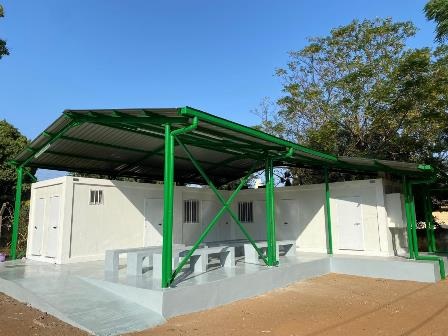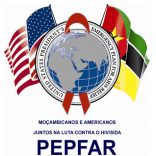Mozambique distinguished as Champion in the Fight Against Malaria
Mozambique: Mavalane methadone clinic ready to open, waiting for MISAU approval

Image: RM
The project to roll out methadone treatment clinics for patients who use drugs is nearly a reality.
At Clínica Apto, one of the four clinics scheduled to open this year, Doctor Sara Silambo is ready to start activities, and only awaits approval from the Ministry of Health (MISAU).
The clinic, at Mavalane General Hospital in Maputo, has infrastructure, human resources and equipment all ready, Doctor Silambo said during a webinar with journalists and community radio stations about HIV prevention and harm reduction.
At the meeting, organised by the Citizen Observatory for Health (OCS), Silambo said that the opening of Mavalane Methadone Clinic would increase the ability to meet the demands of drug users seeking to kick the habit.
“We had a delay in opening the new doors, but this problem is being resolved. […] The clinic has already been set up, human resources have already been hired, namely a doctor, counsellors, nurses and pharmacy technicians to work at the clinic. Now, we are just waiting for the approval from MISAU to begin activities,” she explained.
Silambo also said that work at the methadone clinic in Nampula was finished, while the other two clinics – one in Beira and the other at Maputo Provincial Hospital – were still being set up.
The Apto Clinic at the Alto Maé Health Centre in Maputo has 206 patients attending for daily methadone injections.
“In fact, the Clinic has an installed capacity of 200 patients. We have 206 patients because we treat some particular situations, such as pregnant women and patients undergoing treatment for multi-drug resistant tuberculosis. We currently have three pregnant women and three patients undergoing tuberculosis treatment,” Dr Silambo stressed.
Since opening in February 2020, theAlto Maé methadone clinic has served more than 370 patients. “Registrations of those interested in treatment was closed in May 2021, with more than 2,000 patients waiting for an opportunity to start treatment,” she said.

Since methadone treatment is long-term, the treatment of new beneficiaries is only possible with the expansion of the programme or if current patients leave.
So it is that the OCS, with the support of REPSI, is lobbying for more methadone clinics to be opened across the country.
Methadone is a medicine from the opioid family, used to treat heroin addiction. Maintenance treatment for heroin addicts replaces heroin with medically prescribed and orally administered medications, such as methadone, which reduces and treat heroin withdrawal symptoms and also lessens the euphoric effects of other narcotics.
Its objectives are to reduce or stop heroin injection behaviour and the risk associated with the transmission of blood-borne viruses, such as HIV and hepatitis.
It also aims to reduce the risk of overdose, criminal activity, improve psychological, emotional and physical health, engage in harm reduction measures, reduce mortality and morbidity, as well as reduce social costs associated with illicit drug use.
In another development, Silambo said challenges persist in the shape of lack of information and misinformation about harm reduction and methadone and the benefits to the community at the level of justice, police and health professionals.
She also spoke about the lack of qualified professionals to work with people who use drugs, namely doctors, nurses, psychologists and counsellors.
For his part, Adérito Tratane, from UNIDOS, stated that the issue of drugs was a problem that affects everyone without exception, since people who use drugs are often stigmatized and accused of being criminals, without perhaps committing any crime.
He stresses the need to treat drug users with dignity and the urgency of defining a law that differentiates between a drug user and a drug seller, claiming that the latter can be considered a criminal, while the consumer is rather a victim of crime.
In turn, António Mate, coordinator of the public participation pillar at the Citizen Observatory for Health, highlighted that the event aimed to inform journalists and community radio agents about the advocacy actions carried out in the context of new prevention technologies HIV, with a focus on methadone therapy and harm reduction in the first half of 2024.
But also, the intention was to guarantee and encourage more engagement with the media, so that they are more informed, and above all more committed from a responsibility point of view in relation to this topic considered a public health problem that the country struggles with.
“We know that both civil society organisations and journalists are all citizen advocates and we advocate for access to health services by looking at this key population group, which are people who use or inject drugs,” he highlights.
“We also intend to create more updates and ensure the capacity of journalists to produce evidence-based articles,” Mate adds. “We want them to have this ability to make a replica in the spaces where health issues are discussed, regarding this issue of methadone, but also access to health services for this population group, as they are often marginalised because of this vulnerability.”













Leave a Reply
Be the First to Comment!
You must be logged in to post a comment.
You must be logged in to post a comment.